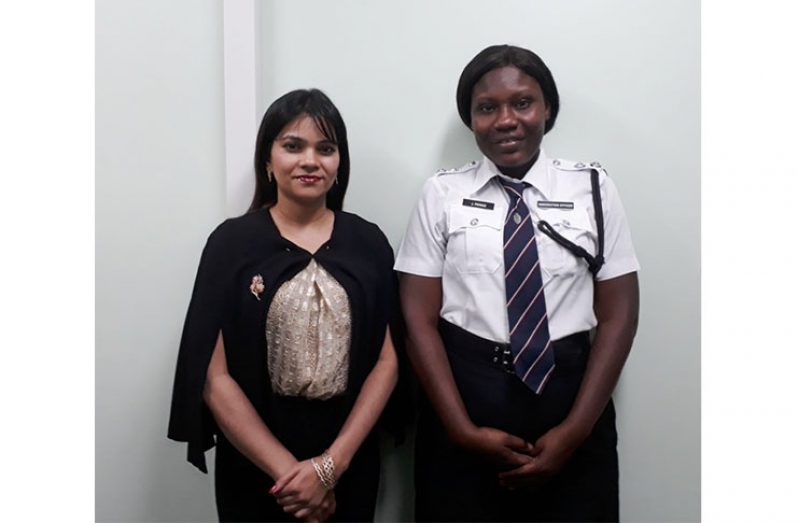As part of a coordinated response to the displacement of Venezuelan citizens fleeing the economic situation in that country, Guyana and several other regional nations have agreed to the creation of a regional information card for the migrants.
Health records and educational information pertaining to the migrants will be placed on the records with the consent of the card holder, a release from the Ministry of the Presidency stated.
According to the release, Guyana recently participated in a two-day Technical Meeting on the Quito Process held in Buenos Aires, Argentina, during which the representatives agreed to the creation of a Regional Information Card for Venezuelan migrants.
Legal Officer, Frontiers Division, Ministry of Foreign Affairs, Ms. Dianna Khan and Officer-in-Charge of Ports of Entry, Immigration Department of the Guyana Police Force, Assistant Superintendent, Ms. Jeanette Prince participated in the meeting, which was held on September 17 and 18, 2019.
The release stated that the two Guyanese were among Ministries of Foreign Affairs and Immigration officials representing several Latin American countries. Also present at the meeting were officials from the International Organization for Migration (IOM) and the Office of the United Nations High Commissioner for Refugees (UNHCR).
The Quito Process focuses on a coordinated regional response to Venezuelan displacement. It is a multilateral initiative of several Latin American countries that aims to harmonize domestic policies in receiving countries.
On Monday, Prince stated during a Multi-agency Coordinating Committee meeting at the Department of Citizenship which addressed the influx of Venezuelan migrants into Guyana, that the information listed on the card will assist in the effective integration of the migrants into the country they enter.
Following the circulation of a sample of what the card is expected to look like, Prince said that the name of the card will be changed from Regional Mobility Card to Regional Information Card.
“Based on the fruitful discussions coming out of the working group, we realised that the card is not meant to be a travel card, it is not meant to replace any visas as it relates to the country’s acceptance of the Venezuelan citizens, but it is an information card,” she said.
Prince pointed out that migrants will have to sign a consent form to allow for the placement of health records and information pertaining to their educational background on the card.
She said that the recording of health records is important because most of the time migrants receive the necessary vaccines in one country.
“If this information is on the card, it means that when they enter another country, we will be eliminating that case of duplication. It means that that person will not have to be vaccinated again in that country because we will know and we will have this card,” she said.
The card will be compatible for background checks of migrants against the EU security system and Interpol.
Prince told the committee that a draft document concerning the card which was circulated at the end of the meeting, is likely to be tabled at an upcoming meeting to be held in Bogota, Colombia at the end of the year.
Khan later added that the inclusion of a tax identification number on the card and a regional agreement to facilitate this were also discussed.
Since the Venezuelan economy took a downward spiral, hundreds of Venezuelan migrants have been fleeing that country to neighbouring states.
Earlier this month, United States Agency for International Development (USAID) stated that approximately 4.3 million Venezuelans live outside the country since the crisis began, fleeing hyperinflation, unemployment, violence and shortages in food and medication. The UN projects the number to reach as much as five million by the end of this year. Millions have fled to Colombia, Chile, Peru, Ecuador, while thousands still are taking refuge in Guyana and Trinidad and Tobago.
In July this year, Minister of Foreign Affairs, Dr Karen Cummings told the OAS General Assembly that Guyana remains “seriously affected” by the influx of Venezuelan citizens seeking relief from the situation in their homeland.
She also gave Guyana’s commitment to seeing a solution to the issue. “The Government of Guyana, shares the concerns of OAS member states and of the international community over the continuing political, economic and humanitarian problems in the Bolivarian Republic of Venezuela,” the Minister noted.
A recent survey by USAID stated that of 1100 Venezuelan migrants in Guyana, figures indicates that 17 per cent of that population, which is school-aged, is attending school here. It is estimated although the figures may have since risen, as of February this year, Guyana hosted approximately 36,400 Venezuelan migrants.



.jpg)










